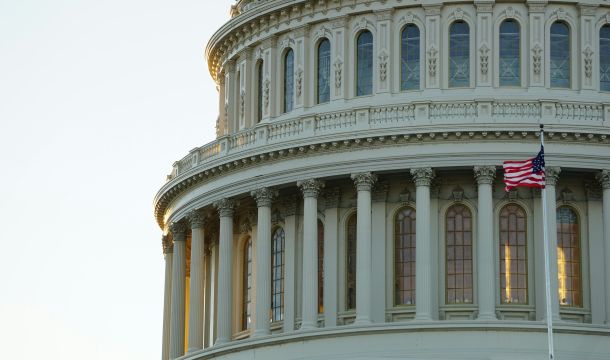What Employers Should Do Now concerning Covid Vaccination Mandates
There are actually at least three COVID mandates pending, one dealing with employers of 100 or more employees, a second dealing with federal contractors and certain subcontractors, and a third dealing with healthcare. As of this writing, some 26 states have sued to block the OSHA Emergency Temporary Standard (ETS), while over 25 employers or trade associations have sued to block the measure. There is also litigation pending against the federal contractor rule, and there is litigation starting concerning the healthcare rule as well.
On Saturday, November 6, 2021, the Fifth Circuit Court of Appeals issued a stay putting on hold the ETS in a lawsuit by Texas challenging the OSHA ETS, in a case seeking to void the ETS as unlawful. The Fifth Circuit stay operates on a nationwide basis, and on November 12, 2021, the Fifth Circuit entered an injunction against the Secretary of Labor prohibiting OSHA from taking any action to enforce the ETS until the court makes a final determination on the challenges to it. The Fifth Circuit's opinion was highly critical of OSHA and found that the ETS "threatens to substantially burden the liberty interests of reluctant individual recipients put to a choice between their job(s) and their jab(s) . . . ." Because cases on the issues were pending in 12 judicial circuits, there was a judicial lottery and the Sixth Circuit Court of Appeals was selected to hear the case on the merits. Meanwhile, the current injunction could be subject to further review at any time. The injunction order if not changed will only remain in effect until a final circuit court review decides the matter on the merits. Ultimately, the issue is likely to end up before the U.S. Supreme Court.
Although currently stayed, the OSHA ETS would have required all covered employers to provide paid time off for their employees to get vaccinated and, if needed, sick leave to recover from vaccine side effects (up to four hours of paid time). The ETS would have required covered employers to ensure that unvaccinated employees wear a face mask while in the workplace. In addition, it would have required employers to provide employees in a language and at a literacy level the employees understand specific information about the requirements of the ETS and things to know about the COVID-19 vaccines. It would require employers to report work-related COVID-19 fatalities to OSHA within eight hours of learning about them and work-related COVID-19 in-patient hospitalization within 24 hours of the employer learning about the hospitalization.
Subsequently, the ETS and the federal contractor rule were modified to require the final vaccination dose, either their second dose of Pfizer or Moderna, or single dose of Johnson & Johnson, by January 4, 2022.
Unlike the OSHA ETS, the federal contractor requirement has not been stayed by any court as of this writing. It has provisions requiring steps to be taken by federal contractors including requiring covered contractor employees to be fully vaccinated beginning on January 4, 2022. After that date, all covered contractor employees must be fully vaccinated by the first day of the period of performance on a newly-awarded covered contract, and by the first day of the period of performance on an exercised option or extended or renewed contract when the clause has been incorporated into the covered contract. At that time, federal contractors and their subcontractors, except for those subcontractors who provide products, will be required to conform to the following workplace safety protocols:
- COVID-19 vaccination of covered contractor employees, except in limited circumstances where an employee is legally entitled to an accommodation;
- Compliance by individuals, including covered contractor employees and visitors, with the Guidance related to masking and physical distancing while in covered contractor workplaces; and
- Designation by covered contractors of a person or persons to coordinate COVID-19 workplace safety efforts at covered contractor workplaces.
Unlike the ETS, there is no allowance for employee testing in lieu of vaccination in the government contractor rule. Further, there is no alternative for contractor employees to provide an attestation of vaccination or previously accepted substitute documentation of proof of vaccination that is inconsistent with the current requirements.
Some 25 states have sued the Biden Administration over the federal vaccine mandate for contractors, as have a number of private business groups. The issues in this litigation are somewhat different from those under the ETS and raise issues such as whether the vaccine mandate violates state sovereignty by forbidding the states from exercising their police power to establish laws regarding workplace vaccination policies, and whether the vaccination mandate is consistent with the federal procurement laws and the Administrative Procedure Act. The situation is complicated particularly since a number of states have passed laws prohibiting mandatory vaccination.
Because of the legal uncertainties, a government spokesman in explaining the federal contractor rule states that: ". . . contractors will not face termination if they have a vaccination requirement in place and are working to bring their workforce into compliance."
Employers are rightfully concerned about the impact of the vaccine mandates on their workforces and confused about the various legal proceedings and their ultimate responsibilities. Boeing reports that almost 10% of its workforce has requested exemptions from the mandatory vaccination. A few states prohibit mandatory vaccinations in certain situations.
Planning and caution should be the order of the day. There is a risk in moving ahead too rapidly, as things could change quite quickly. There is also a danger in not moving ahead at all. The latter point is because the implementation dates of the various mandates will not automatically change, so that an employer that discontinues its planning will have to move much more expeditiously should the situation change.
The situation calls for employers to have various contingency plans in place. These contingencies plans including exemption forms for both religious and disability accommodations, a potential testing protocol for those employers intending to allow the testing exception from mandatory vaccination, and draft policies as required by the ETS and the practicalities of the situation. Of course, employers can also identify in the meantime non-vaccinated employees, attempt to obtain voluntary compliance through education and, incentives if necessary, and determining the corrective action process to be used on employees who remain unwilling to comply.
The EEOC recently published a sample form that employers can use for religious accommodation requests from workers, which can be used for COVID-19 vaccine mandates. It is the same one the Agency uses for its own employees.
This is part of our December 2021 Newsletter.
Click here to download the newsletter PDF
Related Content
Get Email Updates

TPS Update (as of 2/6/2026)

Job Interviews Can Be a Good Selection Device

Suggestions on How to Diffuse a Tense Situation

Employers Blame Unions for Recent Shutdowns

$27 Million Verdict against Employer on Disability Discrimination over Refusal to Return Employee to Work



